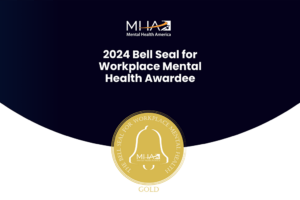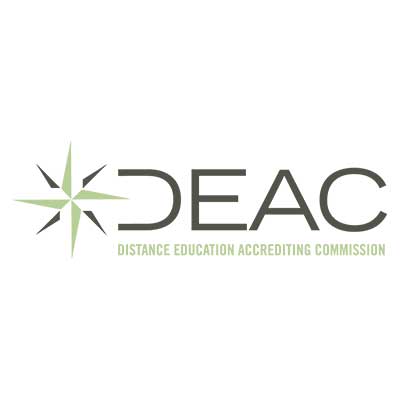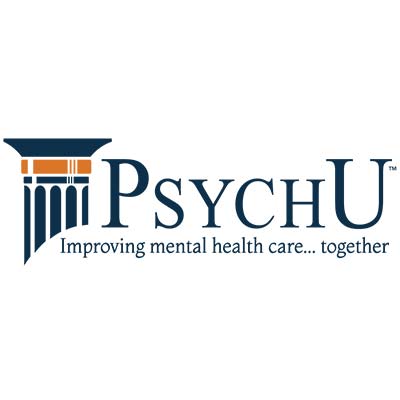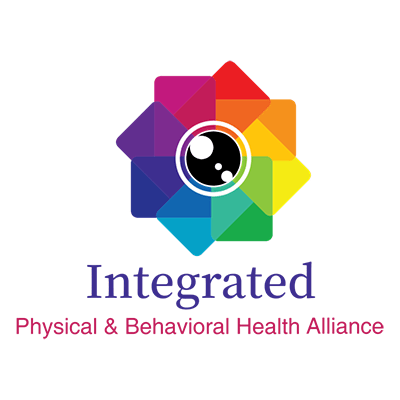Student Services
Institute Calendar and Term Schedule
Religious Holidays and Observances
Institute Calendar
Institute Calendar and Term Schedule
Cummings Graduate Institute operates continuously with terms beginning throughout the year. Spring I, II, and Fall courses are twelve (12) weeks and the Summer term is seven (7) weeks in length. a minimum of a one (1) week break is scheduled between each term, but some terms have a two (2) week break. All United States federal government holidays will be observed, and classes will not be in session nor will assignments be due on those dates.
Religious Holidays and Observances
Cummings Graduate Institute respects and honors the religion and cultural traditions of our diverse students. Cummings Graduate Institute faculty members will work with students to accommodate reasonable deadline extensions so that students can observe holidays and cultural traditions. It is the responsibility of the student to communicate the need for flexibility with due dates or other deadlines for assignments, tests, etc. due to a religious or cultural observance not already part of a planned holiday break for the program.
Institute Calendar
The “year at a glance” calendar shows all term start and end dates. To view institute calendars, including term start and end dates, for current, future, and prior academic years visit the Academic Calendar Archive.
Academic Advising
Mentorship Program
Culminating Project Resources
Library
Reading and Writing Support
Advocacy Resource
Delta Epsilon Tau International Honor Society
Academic Advising
The Cummings Graduate Institute Academic Advising program supports degree seeking students’ academic success and degree completion. Advisors are assigned to students upon admission to Cummings Graduate Institute.
Advisors work with the Registrar and each student collaboratively from admission through graduation, advising each on their academic performance, helping to navigate institutional structures, and connecting the student with resources to support educational and professional performance and research.
Mentorship Program
CGI’s Mentorship Program provides degree seeking students with support and resources during their time in the degree program, ultimately helping to make the student experience more successful and satisfying. Benefits of the program include:
- Assistance with the transition after graduation
- Improvement project implementation support at work
- Support during difficult times
- Guidance and advice
Mentoring is a developmental partnership through which one person shares knowledge, skills, information and perspective to foster the personal and professional growth of someone else. The power of mentoring is that it creates a one-of-a-kind opportunity for collaboration, goal achievement and problem-solving.
Culminating Project Resources – DBH Students ONLY
The purpose of the Culminating Project is to demonstrate mastery of the knowledge and skills necessary to serve as leaders in healthcare. It is a scholarly response to a healthcare problem of practice. Degree seeking students may respond to the problem through either traditional research with the option of going through an institutional review board (IRB) or with an entrepreneurial project. For both options, students first define a healthcare problem as the topic of investigation. There must be evidence from a combination of clinical experience and professional literature stating there is a problem. The Culminating Project involves a critical review of the relevant research and theoretical literature related to the problem and possible solutions to the problem.
All students who undertake the research option and are interested in publishing their work must complete the IRB process if their study involves interviewing, surveying, testing, treating, and/or experimentally manipulating human participants or archival data on human subjects. IRB approval must be gained prior to beginning the research.
All degree seeking students at Cummings Graduate Institute are required to complete the CITI Training for Human Subjects Research to ensure students are aware of and remain in compliance with ethical standards for conducting research. CGI partners with the University of New Mexico’s Office of Institutional Review Board to review human subjects research proposals.
Not all Culminating Projects require IRB approval. The “Common Rule” (45 CFR 46 subpart A) defines a set of research activities that may be exempt from its purview. Exempt research has very little, if any, associated risk. CP Instructors and Committee Chairs work with doctoral students to determine whether a proposed Culminating Project requires IRB approval.
Cummings Graduate Institute offers the following academic resources to all students to aid in their success and development.
Institutional Review Board (IRB) supported through a partnership with the University of New Mexico. Students are responsible for paying for their new project, continuations, amendments, human subjects research determinations, and Just in Time and 118 Determinations. Invoices are sent from the University of New Mexico to Cummings Graduate Institute upon the IRB’s review of the student’s project. Cummings Graduate Institute will pay the invoice to University of New Mexico. Then Cummings Graduate Institute will invoice the student via Populi. Refunds are not available to any IRB Fee Schedule because the University of New Mexico does not offer a refund to any student/institution, since the invoice is delivered post review. Students will have thirty (30) days to pay the invoice via Populi before being assessed a late fee. If a student fails to pay on time, they will be subject to Cummings Graduate Institute’s Collection Timeline.
- UNM IRB Fee Schedule
| New Project | $1,500 |
| Continuations | $500 |
| Amendments | $500 |
| Human Subjects Research Determinations | $500 |
| Just in Time and 118 Determinations | $500 |
| Other Submission | |
| Administrative Reviews | No Charge |
| Reportable Events and Unanticipated Problems | No Charge |
| Protocol Deviations | No Charge |
| Closures | No Charge |
- Consultations with a subject matter expert in research design and data analysis planning will be available to students during the second and third Culminating Project cohorts.
- All Advisors and Faculty provide extensive academic support to students on assignments to enhance success in the program.
- The Library has a unique set of LibGuides, which are collections of resources specific to student success in the Culminating Project.
Degree seeking students can access these academic resources through the Culminating Project courses, CORE Library, and through consultation with their Advisor.
Library
Available to students remotely, the Cummings Graduate Institute’s state-of-the-art online library, Cummings Online Resources (CORE) has an extensive, integrated online collection of evidence-based resources.
Accessed via the Cummings Graduate Institute’s website, CORE’s online collection includes tens of thousands of full-text journals and online reference works, providing students and faculty with access to e-Journals and databases seamlessly through online search engines.
CORE is committed to supporting the academic research needs of students, faculty and staff. The CORE Library and its Librarian deliver this support and aim to fulfill the mission of Cummings by helping students and faculty to discover, acquire, adapt, and innovate with information, in addition to teaching information literacy skills that assist students to interpret, use, and share what they learn.
Library services include the following:
- Research Databases – Access to databases containing thousands of journals, magazines, newspapers, and other information resources in the fields of health, medicine, psychology, and business.
- Research Assistance – The CORE Librarian is available to help students with research projects and assignments. Students may book an appointment with the CORE Librarian on the library’s website.
- Library Tutorials – Pre-recorded user guide videos and tutorials are available on the CORE website. The tutorials provide in-depth information about using CORE resources and services. Students are strongly encouraged to view a CORE tutorial prior to beginning coursework.
- Library Hours – The library’s resources are available 24 hours a day, 7 days a week.
For more information on the CORE Library and its services, please visit the library’s website: http://azhin.org/cummings.
Reading and Writing Support
In support of its students, CGI offers a comprehensive Writing Center aimed at promoting the development of scholarly writing skills. Students can receive assistance with brainstorming ideas for upcoming ideas, developing an outline, synthesizing their research, and much more. Detailed feedback on drafts of written assignments is also offered. All meetings take place virtually on Zoom between the student and CGI’s Writing Coach. This is a no additional cost service offered to all enrolled students. Students can request an appointment on their own or they may be referred by a faculty member.
Advocacy Resource
The Student Advocacy and Assistance service at CGI guides degree seeking and non-degree seeking students in resolving educational, personal, and other academic impediments toward successful completion of their academic goals. The purpose of this service is to empower students to overcome obstacles to their growth both inside and outside the classroom by providing students with resources to make informed decisions and take a proactive role in the resolution process so that they may maintain progress toward earning a degree.
Student Advocacy and Assistance strives to make appropriate referrals and contacts to help address students’ personal concerns and negotiate through the various administrative options available to them as a student of CGI. Student Advocacy and Assistance can help students define the problem and find the best resources to address their concerns during difficult times. Some of the possible means for resolving educational barriers and difficulties include:
- Absence Letters
- Course Incomplete
- Course Withdrawal
- Compassionate Withdrawal
- Medical Withdrawal
The Student Advocacy and Assistance is managed by a licensed counseling professional who also serves as a student Advisor. Currently, the service is under the scope of the Director of the Program, who is trained to protect student confidentiality and to provide appropriate referrals in alignment with the goals of this student service. In the event that a student discloses intent to harm oneself or others, the Director of the Program adheres to a mandatory reporting policy, which entails contacting the mobile crisis team(s) local to the student for assistance.
Delta Epsilon Tau International Honor Society
Cummings Graduate Institute is proud to charter the Alpha Beta Chapter of Arizona of Delta Epsilon Tau International Honor Society. Delta Epsilon Tau is the premier national honor society for America’s accredited distance learning institutions. Delta Epsilon Tau only places Chapters in those institutions recognized by the Distance Education Accrediting Commission. The purpose of the Society is to encourage and recognize superior student academic achievement, character and leadership. The fact that an individual is elected to membership sets themselves apart from other students and clearly demonstrates a serious commitment to distance education and self-study.
Membership Privileges and Honors
Below are a list of member benefits and privileges that come with Delta Epsilon Tau Membership:
- National Student Recognition
- Reference Delta Epsilon Tau on all Future Resumes
- Lifetime Membership (no annual dues)
- Letters of Reference (upon request)
- Networking Opportunities with other Delta Epsilon Tau Chapters
- Delta Epsilon Tau Members receive personalized Membership Certificates that profile their institutions and Chapters
- Each Certificate includes the Delta Epsilon Tau Gold Seal of Distinction
- Delta Epsilon Tau Members receive the DET Gold Key, Congratulatory Letter, and Honor Society Narrative
Recognition Process
All potential candidates are nominated by the Cummings Graduate Institute Selection Committee. The Selection Committee will send potential candidates an invitation and membership application (provided by the Delta Epsilon Tau Honor Society).
Students will mail their applications and fees directly to DETHS. Within a few weeks, all DET Honors are mailed directly to each outstanding student.
All recognition materials are customized and distributed by the Delta Epsilon Tau Honor Society. Honor graduates receive:
Membership Certificates – Each certificate, prepared individually, includes:
- The Delta Epsilon Tau Honor Society Crest
- The Name of the Outstanding Graduate
- The Name of the Distance Learning Institution
- The Specific Chapter Name (Alpha, Beta, Gamma, etc.)
- The Official Date of Graduation (if requested)
- The Delta Epsilon Tau Gold Seal of Distinction
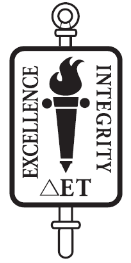 Honor Society Gold Key – To accompany the certificates, each honor graduate also receives the Delta Epsilon Tau Gold Key. Professionally die struck, sandblasted and polished, each Gold Key bears the Greek letters for DET. For presentation purposes, each Gold Key is handsomely profiled in its own case.The emblem, a gold key or badge, may be worn with pride by those who have been elected to membership. This emblem bears the Greek letters for DET, the Flaming Torch and two of the finest words in any language—Integrity and Excellence.
Honor Society Gold Key – To accompany the certificates, each honor graduate also receives the Delta Epsilon Tau Gold Key. Professionally die struck, sandblasted and polished, each Gold Key bears the Greek letters for DET. For presentation purposes, each Gold Key is handsomely profiled in its own case.The emblem, a gold key or badge, may be worn with pride by those who have been elected to membership. This emblem bears the Greek letters for DET, the Flaming Torch and two of the finest words in any language—Integrity and Excellence.
The Flaming Torch represents the light of continuous learning. The light serves as a guide, meaning that you are guided by the light of learning and are yourself a guide to others. This image or symbol of knowledge illustrates the significant value of lifelong learning, which for many adults now enrolled in distance education institutions, includes continued learning while earning.
Congratulatory Letters – Each Honor graduate receives a special congratulatory letter from the Honor Society.
Honor Society Narrative & Overview – Each Honor graduate receives a narrative and overview about the Society.
Questions about the Delta Epsilon Tau Honor Society can be directed to deths@cgi.edu.
CGI invites all degree program graduates to become a member of its Social Media alumni groups. These groups allow networking amongst alumni.
A weekly email including exciting updates, alumni accomplishments, career workshops, upcoming conferences to attend with opportunities to present or poster, and announcements is distributed to all alumni. All degree program alumni are invited to send updates related to their careers to be included in the monthly Biodyne Mindset newsletter. Degree program alumni are granted admission at no cost to all CGI conferences, professional development webinars and events, and are given Alumni Access to the CORE library.
Cummings Graduate Institute is pleased to offer career guidance and resources to all Doctor of Behavioral Health students. Whether you aim to move into a new role, advance into a promotion, or shift careers or employers, we are here to help our students prepare and leap confidently into the next level of your career. Visit the Career Services page for
Visit the Career Services page.
Click here to view complaints and grievance policies, procedures, and forms.
CGI is dedicated to serving degree seeking and non-degree students with disabilities by providing reasonable accommodations for everyone to be successful in furthering their education at this institution. Students with disabilities are encouraged to disclose and submit a Disability Notification and Accommodation Form at least/minimum of two (2) weeks before the start date of classes or immediately after diagnosis.
The Director of the Program reviews all requests for accommodations and may require documentation of disability to determine whether the disability identified falls under the protection of the Americans with Disabilities Act and/or Section 504 of the Rehabilitation Act. The Director of the Program makes reasonable accommodations that can be made without fundamentally altering the essential nature of the academic program requirements and if the student can be successful in our program. The Director of the Program notifies the student in writing of the accommodation request status including approved accommodations for educational purposes. Appropriate faculty and select Institute staff members with an educational need to know will also be informed of any approved accommodations.
A student may choose to attempt a class without accommodations and to self-identify later in the process. However, if the student opts for this approach, any grades that have been earned without the use of accommodations remain as published.
Disability records are kept confidential and separate from academic records.
In addition, registration with Disability Services may take place at any point during the term. Once the student has provided the appropriate documentation, the accommodations can be instituted.
CGI does not discriminate based on disability. CGI is committed to compliance with Section 504 of the Rehabilitation Act of 1973, the Americans with Disabilities Act of 1990, and all other applicable laws prohibiting disability discrimination.
Cummings Graduate Institute expects students to pursue the Mission, Vision, and Values of the Institute in their work with colleagues, faculty, and staff, as well as in their work in their local communities. Doctors of Behavioral Health and non-degree certificate graduates possess great power and great responsibility for improving healthcare for the greater good. As such, students are expected to live true to professional codes of ethics for behavioral health providers as well as for healthcare quality professionals.
Behavior deemed to be in violation of the CGI Mission, Vision, and Values, or in violation of professional codes of conduct will be subject to review by the Student Disciplinary Committee, and may result in dismissal from CGI.
Students are required to maintain communication with all Administrative and/or Faculty members at Cummings Graduate Institute. They are expected to enter into their online classrooms and actively participate as members of the course. They are expected to return all communication for Administrative and/or Faculty members within forty-eight (48) hours of initial contact. Cummings Graduate Institutes uses email, phone, and text messaging as official forms of institute communication. Students disclose their preferred method of communication in their signed Enrollment Agreement. Students opt-in or out to text messaging via Populi, the student information system. Students are required to use their designated Cummings Graduate Institute email for all email correspondence.
Academic Performance Grades
Graduate Level Course Grade Requirement
Grade Reporting
Appealing a Final Grade
Administrative Course Codes
Academic Performance Grades
Grades are based on the faculty member’s academic judgment that the student has demonstrated a specified level of performance based on objective and subjective grading rubrics, such as papers, presentations, assignments, examinations, projects, and discussions. Students are graded according to their individual performance in the course and not on a curve. Students are not compared with each other to determine a grade or performance ranking. Criteria for awarding grades for achievement may include, but are not limited to, the following:
- Preparation of assignments, including accuracy, clarity and promptness
- Quality of Contribution to faculty member-student discussions
- Demonstrated knowledge of concepts on exams, papers, assignments, etc.
- Application of skills and principles to new and real-life situations
- Organization, presentation and professionalism of written and oral reports
- Originality and reasoning ability demonstrated in working through assignments
Grade points are assigned to each of the following grades as indicated and used to calculate a cumulative Grade Point Average (GPA) for each student:
| Grading Scale | |||||||||||
| Exemplary | Accomplished | Developing | Unsatisfactory | ||||||||
| A+ | 97-100 | 4.0 | B+ | 87-89 | 3.0 | C+ | 77-79 | 2.0 | D+ | 67-69 | 1.0 |
| A | 93-96 | 4.0 | B | 83-86 | 3.0 | C | 73-76 | 2.0 | D | 63-66 | 1.0 |
| A- | 90-92 | 4.0 | B- | 80-82 | 3.0 | C- | 70-72 | 2.0 | D- | 60-62 | 1.0 |
| F | < 59 | 0.0 | |||||||||
Foundations (DBH 1000), ePortfolio (DBH 1100), and Culminating Project Courses (DBH 9100 A/B/C) Grading Scale ONLY
Certain courses use a Pass/Fail Grading Scale. Any course using the Pass/Fail Grading Scale will note the grading scale in the syllabus. The faculty overseeing the course determines all final grades. The pass or fail grade will be based on a balance evaluation of both qualitative (e.g., participation in webinars) and quantitative (completion of assignments) data. Final Grades will be posted as follows:
| Grading Scale – Pass/Fail | ||
| Grade | Grade Code | Description |
| Passing | P | Passing the course (students who have completed the required assignments with a total grade of 80% or above) |
| Failing | F | Failing the course (students who have not completed the required assignments or who have completed them at a total grade of 79% or lower). A failing grade will result in a requirement to retake the course. The student will be unable to progress to the next cohort until a passing grade has been earned for the course. |
Incomplete Grades
Incomplete is defined as students who have completed substantial work on all assignments and require additional edits or time in the course. If a student requires additional time beyond the term of enrollment to complete assigned deliverables, an “I” grade may be requested.
This grade indicates that the student has entered into a written agreement, using the Incomplete Grade Form, with the faculty member for the six-week extension of the remaining deliverables, and that the student is currently making progress towards those deliverables under the supervision of the faculty member.
If the student is unable to complete the deliverables per the terms of the Incomplete Grade Form within the six-week extension, the student must request an additional extension, and will be subject to a continuation fee of $350 for the additional extension.
DBH Culminating Project ONLY
An “I” grade will result in students being unable to progress to the next cohort of the Culminating Project series DBH 9101, 9102, 9103 until the required coursework is completed and approved by the faculty member. Once the coursework is approved, the faculty member will submit a Grade Change Form to the Registrar to assign the appropriate passing grade and students will be allowed to register for the next cohort of DBH 9101, 9102, 9103. The student will be unable to progress to the next cohort of DBH 9101, 9102, 9103 until all deliverables as outlined in the Incomplete Grade Form have been satisfied and approved by the student’s faculty member and Chair of the CP Committee.
Graduate Level Course Grade Requirement
CGI considers a grade of B- to be the minimum passing grade for courses in the Degree Programs and non-degree certificate programs. Students earning a grade below the minimum must retake the course. When retaking the course, the higher of the two grades is recorded on the transcript. The student must pay tuition to retake the class the second time. If the student receives a second non-passing grade in the retake course, they will be dismissed from the institution. Students are required to have a minimum of a 3.0 Cumulative Grade Point Average and a passing grade in all courses to graduate.
DBH Culminating Project ONLY
Any student who earns a second F for a Culminating Project course will be dismissed from the program.
Grade Reporting
Grades for all assignments in all courses in the degree programs and non-degree certificate programs are based on the Grading Scales above. Rubrics are used for assignments to help students understand how their assignments will be graded before they submit the assignment to help the student meet expectations and be successful. Faculty members are expected to post grades for assignments within seven (7) calendar days of the due date. Students are expected to stay informed of their course grades by checking the online gradebook frequently and communicating directly with the faculty with any questions about assignment grades. Once the term closes, students can expect to see their finalized grade in their student account after ten (10) calendar days.
Appealing a Final Grade
CGI encourages students to have an open and professional communication channel with their faculty to resolve any issues or concerns regarding their assignments grades or final course grades. The course faculty member upon receipt of notification from the student will review the appeal and provide written comments via email to the student within seven (7) calendar days. Faculty members must also copy the Director of the Program on the appeal email response to the student.
If the student is unable to come to an agreement regarding grades in their course with the faculty member, they can submit a Grade Appeal Form to the Director of the Program.
A student may only appeal a grade if it conflicts with:
- Grading rubrics published for the assignment/course.
- Communication (emails, announcements, etc.) from the faculty.
- A calculation error results in a change to the final grade.
Grade appeals must be submitted within thirty (30) calendar days of the end of the term. All grade appeals are reviewed by the Director of the Program. The appeal decision made under the authority of the Director of the Program is final.
Procedure: Appealing a Final Course Grade
| Responsibility | Action |
| Student |
|
| Director of the DBH Program |
|
If the student is dissatisfied with the outcome of a grade appeal, the student has the right to file a grievance using the Complaint/Grievance Procedure.
Administrative Course Codes
| Code | Explanation |
| AUD (Audit) | Auditing is the presence in the classroom without receiving academic credit or a letter grade. A student wishing to audit a course is required to email the Registrar or the Director of the DBH Program for approval. |
| I (Incomplete) | In the event that an unforeseen circumstance threatens a student’s ability to complete a course by the course end date, a student may request a grade of incomplete (I).
For all courses, with the exception of Culminating Project (A, B, C), students may be eligible for an incomplete grade if the following apply.
For the Culminating Project (A, B, C) courses: Incomplete (students who have completed substantial work on all assignments and require additional edits or time in the course). If a student requires additional time beyond the semester of enrollment to complete assigned deliverables for one or more Culminating Project cohort courses, an “I” grade may be requested. This grade indicates that the student has entered into a written agreement, using the Incomplete Grade Form, with the faculty member for a six-week extension of the remaining deliverables, and that the student is currently making progress towards those deliverables under the supervision of the faculty member. An “I” grade will result in students being unable to progress to the next cohort of DBH 9100 until the required coursework is completed and approved by the faculty member. Once the coursework is approved, the faculty member will submit a Grade Change Form to the Registrar to assign the appropriate passing grade and students will be allowed to register for the next cohort of DBH 9100. If the student is unable to complete the deliverables per the terms of the Incomplete Grade Form within the 6-week extension, the student must request an additional extension, and will be subject to a continuation fee of $350 for the additional extension. The student will be unable to progress to the next cohort of DBH 9100 until all deliverables as outlined in the Incomplete Grade Form have been satisfied and approved by the student’s faculty member and Chair of the CP Committee. |
| W (Withdrawal) | The student has canceled enrollment in the course after the first week of instruction and before the end of the course. A cancellation can be received from a student in any manner, but is preferred by the Institution to be received by email. Depending on the date of withdrawal a student may be entitled to a refund based on the Institute’s Refund Policy. Course withdrawals may negatively impact Satisfactory Academic Progress (SAP); see Satisfactory Academic Policy for details.
The “W” also indicates that a student has taken a Leave of Absence (LOA) before the course end date. For more information, please see the Leave of Absence (LOA) policy for specific details |
| XE (Failure due to Academic Dishonesty) | “XE” denotes failure due to academic dishonesty. The XE grade will be recorded on the student’s official and unofficial transcript with the notation “failure due to academic dishonesty.” The XE grade shall be treated in the same way as an “F” for the purposes of grade point average and determination of academic standing. The XE grade will remain on the transcript permanently if it was awarded for an act of academic dishonesty involving significant premeditation. If an XE grade is conferred, and another violation of academic integrity occurs in a subsequent course, the student will be dismissed from the Cummings Graduate Institute for Academic Dishonesty. |
Guidance and advice for students on the use of Generative Artificial Intelligence within Cummings Graduate Institute
The technology, ethics, and use of artificial intelligence (AI) is a fast-moving area. This guidance is current as of February 2024 and will be updated as necessary.
CGI’s Position
There is currently a lot of interest in generative AI systems. ChatGPT (by OpenAI) is just one example, but there are others (such as Claude, CoPilot, Bard, DAll-E-2, etc.) It is an exciting area and naturally we want to explore what it can do and learn how to make use of it.
The position of CGI with regard to artificial intelligence tools is to:
- Emphasize the expectation that assignments should contain students’ own original work;
- Highlight the limitations of generative AI and the dangers of relying on it as a source of information;
- Emphasize the need to acknowledge the use of generative AI where it is (permitted to be) used.
In general, assignments at CGI do not allow for the use of artificial intelligence except where specifically allowed by instructors. When allowed, there may be assignments that explicitly ask students to work with AI tools in specific ways, such as to analyze and critique the content it generates.
Expectation of Own Original Work
All work submitted for assessment should be the student’s own original work. When an assignment is uploaded to the learning management system, Canvas, the student must attest that “This assignment submission is my own, original work and it complies with CGI’s Academic Integrity and Reuse or Recycling of Work policies. I understand that this assignment may be submitted to Turnitin.”It is not appropriate to misrepresent AI-generated content as one’s own work.
Important Note
Be aware that if you use AI tools (such as ChatGPT or others) to generate an assignment (or part of an assignment) and submit this as if it were your own work, this will be regarded as academic integrity violation and treated as such.
Please refer to CGI’s policy on Academic Integrity for more information.
AI Detection
An AI detection tool is employed as part of Turnitin. The tool and its results are not presently visible to students. If an instructor has a concern about AI-generated content in a student assignment, CGI’s process is to make comparisons to a student’s previously submitted work and to talk openly about it with the student.
Current limitations of generative AI
Generative AI offers a number of benefits, but it also has its limitations.
- It is important that students and faculty understand the limitations of any AI system you are using.
- Check the factual accuracy of the content it generates;
- Do not rely on AI generated content as a key source – use it in conjunction with other sources.
Be aware that:
- Generative AI tools are language machines rather than databases of knowledge – they work by predicting the next plausible word or section of programming code from patterns that have been ‘learnt’ from large data sets;
- AI tools have no understanding of what they generate. A knowledgeable human must check the work (often in iterations);
- The data sets that such tools are learning from are flawed and contain inaccuracies, biases and limitations;
- They generate text that is not always factually correct;
- They can create software/code that has security flaws, bugs, and use illegal libraries or calls – or infringe copyrights;
- Often the code or calculation produced by AI will look plausible but contain errors in detailed working on closer inspection. A human trained in that programming language should fully check any code or calculation produced in this way;
- The data their models are trained on is not up-to-date – they currently have limited or constrained data on the world and events after a certain point (2021 in the case of ChatGPT);
- They can generate offensive content;
- They produce fake citations and references;
- Such systems are amoral – they don’t know that it is wrong to generate offensive, inaccurate or misleading content;
- They include hidden plagiarism – meaning that they make use of words and ideas from human authors without referencing them, which we would consider as plagiarism;
- There are risks of copyright infringements on pictures and other copyrighted material.
Important note
Over-reliance on AI tools simply to generate written content, software code or analysis reduces your opportunity to practice and develop key skills (e.g. writing, critical thinking, evaluation, analysis or coding skills). These are all important skills that are valued and required to succeed in and beyond your time at CGI.
Citing and acknowledging the use of AI
If the use of AI is permitted in assessed work, it is important to be transparent about the use of such tools and content generated from them.
Content generated from AI is non-recoverable – it can not be retrieved or linked to in the same way that other digital sources can. For this reason, current convention is to cite AI generated content as “personal communication” (because it is based on asking a question or giving a prompt and receiving an answer). This is usually an in-text only citation.
Each reference style (e.g. APA. AMA, MLA, Chicago) will set out how to do this, so you should consult the guidance for the reference style you are using.
Additionally, if you use any generative AI tool (such as ChatGPT) to help you (e.g. generate ideas or develop a plan), you should still acknowledge how you have used the tool, even if you do not include any AI generated content in your work.
You should acknowledge the AI tool used, describe how you used it, and indicate the date you accessed it.
Further guidance on citing artificial intelligence in your work can be found at the APA Blog https://apastyle.apa.org/blog/how-to-cite-chatgpt or at the CORE Library https://azhin.org/cummings/ai/citing
A New Student Orientation (NSO) is offered through a self-paced online learning course to all newly admitted degree seeking and non-degree seeking students. The orientation course covers a broad range of topics and information necessary to navigate and succeed as a student in Cummings Graduate Institute. Students are expected to complete the course by the deadline six weeks prior to the start of the term. Students have continued access to the orientation course and course materials throughout all enrolled terms. If a student fails to complete NSO on or by the deadline, they will be deferred to the next enrollment term. Please see the Deferral of Enrollment section of the catalog.
The Student Billing Office manages degree seeking and non-degree student financial account records, billing, payments, and refunds. The Student Billing Office can help students with the following tasks:
- Processing tuition payment
- Set up a payment plan
- Process scholarships and private loans
- Process third-party payments
- Access tuition payment records
- Process refunds
The Student Billing Office provides a wide range of services for academic departments and faculty as well. The Student Billing Office can be contacted at finance@cgi.edu or 480-285-1761 ex. 2.
Many students enrolled in our courses are required to take one or more online tests with remote proctoring, where students’ picture IDs are checked. Individual faculty members may decide whether to require proctored examinations for students.
CGI uses a secure, online proctoring service called RP Now, provided by Software Secure, for proctored exam management. Remotely proctored exams are seamlessly integrated into the learning management system.
Students participate in a recorded interview prior to taking the test, where they must present a photo ID that is captured via webcam in the RP Now application. Student exam records are then reviewed by two RP Now certified proctors to authenticate the student ID.
CGI is committed to providing opportunities for networking and collaboration, real-world learning opportunities, national and global field experiences, so that students can learn from experts in the field of integrated care, no matter where they are located. Program administration alerts degree seeking students, non-degree students, and faculty members to upcoming conferences, webinars, events from partner organizations, and national/international conferences, as well as grant opportunities in integrated care. program administrators and faculty members identify and host webinars that can be offered by CGI’s subject matter experts at no cost to enrolled students, alumni, and faculty members.
For additional resources on networking, visit the Career Services page.
The Office of the Registrar manages student academic records and course enrollments on behalf of the Cummings Graduate Institute. The Registrar’s Office can help degree seeking and non-degree students to do the following:
- Order and view transcripts
- Run a degree audit (degree completion worksheet report)
- Apply for graduation
- Apply for readmission to the Institute
- And more!
The Registrar’s Office provides a wide range of services for academic departments and faculty as well. The Registrar’s Office can be contacted at registrar@cgi.edu or call 480-285-1761 x3.
CGI is committed to helping veteran, active-duty, guard and reserve personnel achieve their education goals and maximize military education benefits. When transitioning into graduate student life, veterans may feel limited in their academic options due to family, career or other location obstacles that may restrict them from attending courses on campus. This is where Cummings Graduate Institute can help. As CGI is a 100% online institution, our Resource Center for Student Veterans & Military Connected Students is an online space CGI created on the cgi.edu website to host any veteran supportive information and needs. In addition to CGI’s online resource center, CGI has dedicated shared space in its new facility that veteran students are welcome to use if they need to have a space in an in-person office setting. But as 100% of CGI students are online and a majority are located outside of Arizona, CGI created the online resource center for Veterans to be inclusive of our in-state and out of state students.
To learn more about the Resource Center for Student Veterans & Military-Connected Students at CGI, visit: https://cgi.edu/veterans/.
For more information on student veteran and military-connected student services, please email veterans@cgi.edu.
Student forms are available on a self-serve basis, here.
To access a form once on the Student Forms page, click on the form name, complete the fields as instructed, and select the finish button to submit your form for processing.
If in need of a form not available on the Student Forms page or you experience difficulty accessing or submitting a form, please contact registrar@cgi.edu for assistance.


